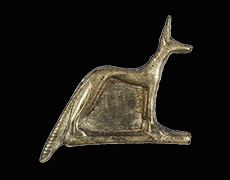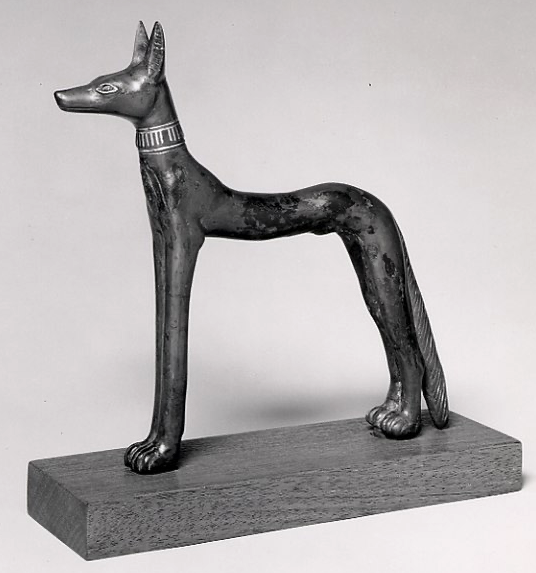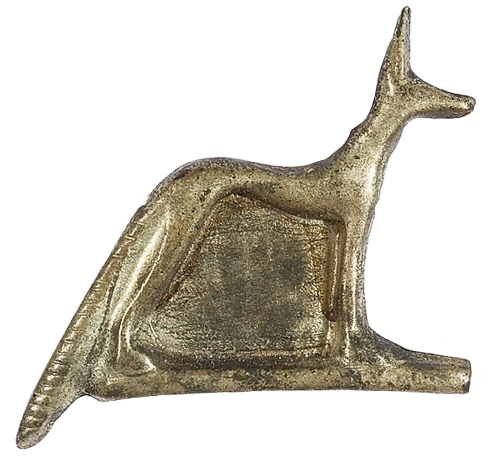
Wepwawet, or Upuaut, was an ancient Egyptian god of war and guidance.
He was depicted as a wolf or a jackal-headed man and sometimes shown in the form of a standard or flag. The flag was then carried into battle to guide and protect the pharaoh and the Egyptian army.
Wepwawet’s name means “Opener of the Ways” or “Opener of the Roads.” Ancient Egyptians believed he could clear the way for the pharaoh and the Egyptian army to march into battle.

He would also guide the dead to the afterlife and was often depicted in tombs and funerary texts.
In addition to his role as a god of war and guidance, Wepwawet was associated with funerary rituals and the afterlife.
He would guide the souls of the deceased to the underworld and help them navigate the dangers and obstacles they would encounter there.

Wepwawet was a popular god in ancient Egypt and was widely worshiped throughout the country.
He was particularly popular in Asyut, where he was the patron god. Many temples and shrines were dedicated to him, and he was depicted in art and literature.
Despite his aggressive nature as a god of war, Wepwawet was also a benevolent and protective deity.

He was invoked for protection and guidance during times of war and peace and was widely venerated by the people of ancient Egypt.
Today, Wepwawet remains an important figure in Egyptian mythology, and his legacy can still be seen in modern Egyptology and Egypt-related art and culture.
Despite the passage of time, the god Wepwawet continues to be revered and celebrated for his powerful and protective nature.

